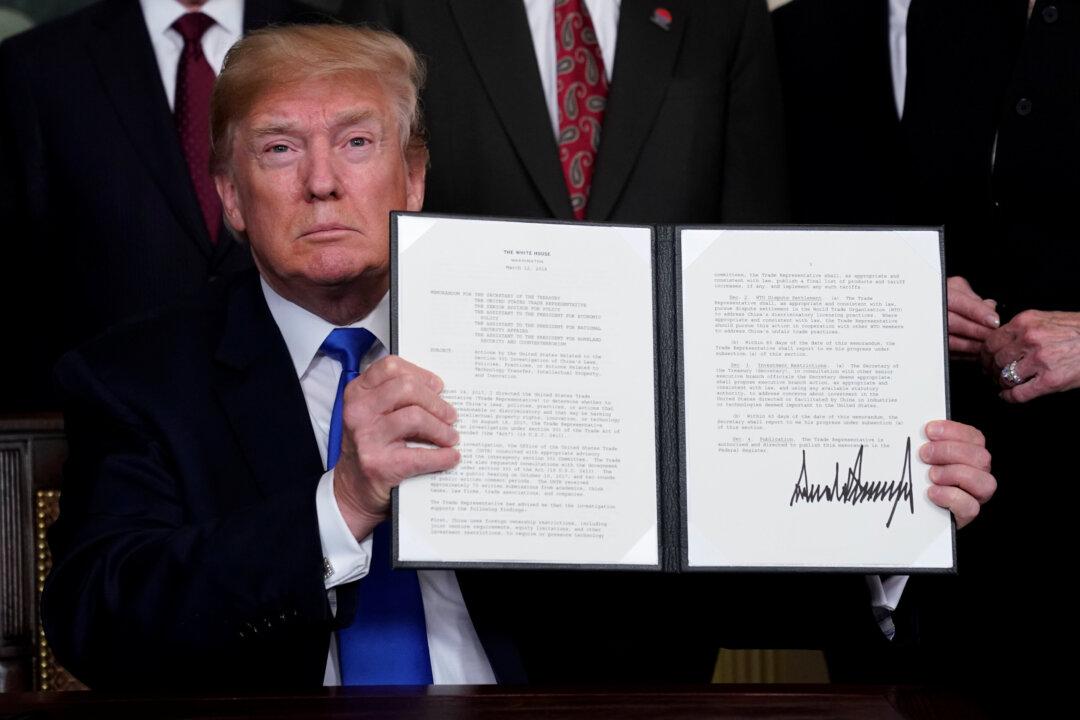President Donald Trump has just signed a memorandum to impose tariffs on Chinese imported goods worth about $50 to $60 billion annually as a penalty for China’s theft of American intellectual property (IP).
The decision was made following the United States Trade Representative’s (USTR) “Section 301” investigation into China’s trade practices involving the theft and forced transfer of American IP. A list of 1,300 targeted products will soon be released by the USTR office headed by Robert Lighthizer. He has previously said the tariffs will target China’s high-tech sector.





